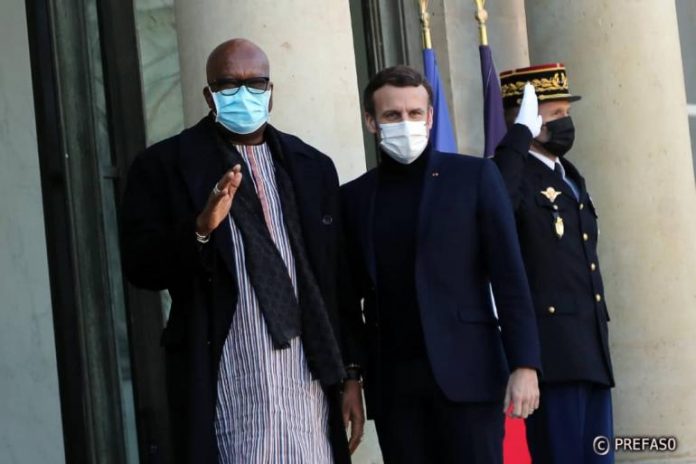The Chadian capital, N’Djamena, is preparing to host the G5 Sahel Summit on February 15 and 16, 2021, amid internal tensions, while Paris considers a shift in its military effort. In the direction of increasing or reducing its workforce? That’s what this meeting is all about.
One year after the G5 Sahel summit held in the city of Pau in France, Chadian President Idriss Déby Itno will welcome on February 15 and 16 his African counterparts from the Sahel and that of France, Emmanuel Macron, for another meeting crucial.
French leaders believe that the need for a reinforcement of the Franco-French workforce is no longer necessary. On the other hand, they would like a decisive and growing commitment from their European allies and a better developed political relay from African states.
Which comes at a time when President Idriss Déby Itno is seeking a new presidential mandate and when some Chadians, opposed to this 6th candidacy, would be repressed and arrested, according to the French NGO Survie.
According to Survie, this Saturday, February 6, 2021, strong mobilizations against the life presidency of Marshal Idriss Déby, invested by his party for the April presidential election, took place in N’Djamena, repressed, like the previous ones, by the security forces. A week before the G5 Sahel summit in N’Djamena which will take place in the presence of French President Emmanuel Macron.
President Idriss Déby Itno of Chad!
Survie asks French diplomacy to condemn this repression and these arrests. Many demonstrators were arrested. Including Mahamat Nour Ibedou, Secretary General of the Chadian Convention for the Defense of Human Rights, and Fatimé Soumaïla, Treasurer of the Les transformateurs party.
In addition, several demonstrators, including the leader of the Transformers party, Succès Masra, surrounded by the security forces, had to take refuge at the United States embassy. Police say the protesters attacked US Embassy security forces, who in effect provided shelter to protesters under tear gas.
Almost thirteen years after the disappearance of Ibni Oumar Mahamat Saleh, this repression aims to prevent the convergence of struggles between civil society and political opposition, in the run-up to the presidential election in April “.
“The course remains unchanged”!
A sufficiently compelling situation for Patrice Garesio, co-president of Survie, to sound the charge: “France has a particular responsibility: historic support for Idriss Déby, it has made it an essential ally of its military establishment in the Sahel which, in the name of ‘so-called stability allows the maintenance of authoritarian power. Ready to give lessons in democracy to Putin’s Russia or Erdogan’s Turkey, France turns a blind eye when it comes to its African home.”
Paris, which in the name of the fight against jihadism, provides support to the regime, has just supplied nine armored vehicles to the Chadian army.
Moreover, since the start of the Macron era, N’Djamena has established itself as Operation Barkhane’s HQ. The military operation carried out in the Sahel and the Sahara by the French army, with secondary assistance from allied armies, aims to fight against armed jihadist groups throughout the Sahel region. While France actively supports Operation Barkhane, Paris is considering, at the February 15 summit, adjusting its military effort in the Sahel.
President Macron, will he, as was decided in Pau, increase the French contingent or on the contrary reduce it? According to various sources, French leaders believe that today the need to strengthen the Franco-French workforce is no longer necessary.
On the other hand, they want a decisive and growing commitment from their European allies and a better developed and well-detailed political relay from the African states. Already, we are talking, without this being formal, of the deployment of elite European units within the new Takuba force, responsible for accompanying the Malian army in combat.
This force created at the instigation of France brings together special forces made up of French, Estonians and Czechs. Faced with all this information, President Macron assures us that “the course remains unchanged”, because the objective is and remains “the stability” of the Sahel and “victory against the terrorists”.
Will France withdraw some of its soldiers at the N’Djaména Summit? The French president, who will attend in person, if the health situation allows it, could make the announcement of the withdrawal or that of opting for the status quo pending a better assessment of the situation.
For his African counterparts in the G5 Sahel, the Mauritanian Mohamed Ould El-Ghazaouani, the Malian Bah N’Daw, the Burkinabè Roch Marc Christian Kaboré, the Nigerien Issoufou Mahamadou, and the Chadian Idriss Deby Itno, cut into the French workforce of the he Barkhane operation is not a sustainable option. And even less a possible solution to the terrorist threat.































